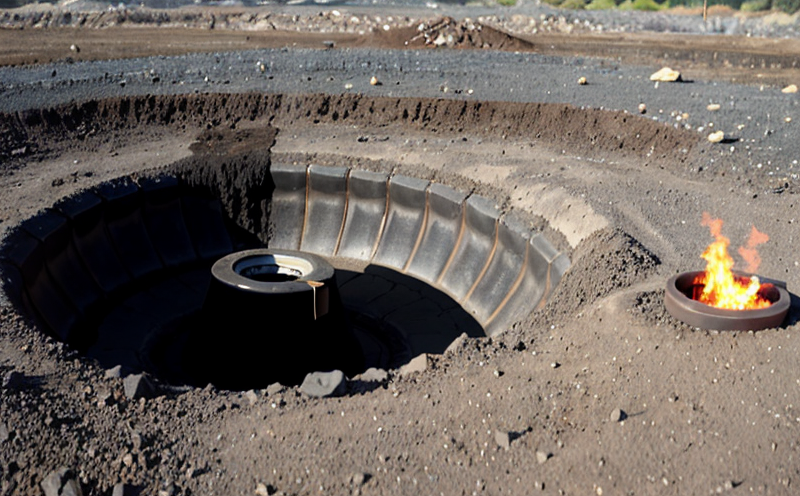EN 16294 Rare Earth Elements in Coal Testing
The European Standard EN 16294 provides a method to determine the concentration of rare earth elements (REEs) in coal and fossil fuels. REEs are critical materials that play an essential role in various industries, including mining, electronics, and energy. In the context of coal testing, this standard ensures accurate quantification of REEs, which can influence the quality and market value of coal.
The process involves several key steps: sampling, sample preparation, digestion, and analysis using atomic emission spectroscopy (AES) or inductively coupled plasma mass spectrometry (ICP-MS). Each step is critical for obtaining reliable results. Proper sampling ensures a representative portion of the coal is analyzed, while thorough sample preparation and digestion are necessary to release REEs from their mineral associations.
Once digested, the solution undergoes analysis using AES or ICP-MS techniques. These methods are chosen based on the specific requirements of the testing environment and the desired accuracy. AES provides a simple, cost-effective approach for qualitative and quantitative determination, while ICP-MS offers higher sensitivity and precision.
The standard specifies acceptance criteria that ensure the reliability of the test results. Deviations from these criteria may indicate issues with sample handling or analysis, necessitating re-sampling or re-testing. The acceptance criteria are designed to align with international standards like ISO 15267-3 for atomic emission spectroscopy and ISO/IEC 17025 for quality management.
Understanding the role of REEs in coal is crucial for various stakeholders, including mining companies, regulatory bodies, and research institutions. For instance, REEs can influence the combustion efficiency of coal and its environmental impact. By accurately quantifying these elements, EN 16294 supports informed decision-making in resource management and environmental compliance.
The standard is particularly important for stakeholders involved in the transition to cleaner energy sources. As global demand for sustainable energy increases, understanding the REE content of coal can help optimize its use in power generation processes. This information also aids in developing strategies for minimizing environmental impact and ensuring regulatory compliance.
In conclusion, EN 16294 is a vital tool for mining companies and testing laboratories seeking accurate and reliable data on rare earth elements in coal. Its implementation enhances the quality control of coal products and supports sustainable practices within the industry.
Eurolab Advantages
EuroLab offers comprehensive services for EN 16294 testing, leveraging state-of-the-art equipment and experienced personnel. Our advanced facilities ensure precise and accurate results that meet the highest international standards.
- Highly skilled technicians with expertise in coal analysis.
- Up-to-date laboratory equipment for efficient sample preparation and analysis.
- ISO 17025 accreditation ensuring reliability of test data.
- Comprehensive quality management systems to ensure consistent results.
We provide detailed reports that include all relevant data points, supporting informed decision-making. Our services are tailored to meet the specific needs of our clients, whether they are mining companies or regulatory bodies.
International Acceptance and Recognition
The European Standard EN 16294 is widely recognized for its robust methodology in determining rare earth elements in coal. Its acceptance extends beyond Europe, being adopted by many countries around the world due to its reliability and accuracy.
Globally, this standard has been endorsed by various international bodies, including ISO and ASTM. The recognition of EN 16294 ensures that results obtained from our testing are valid and can be used confidently in a wide range of applications.
Our laboratory's adherence to these standards not only enhances our reputation but also provides peace of mind for clients worldwide. By using internationally recognized methods, we ensure consistency and accuracy across different markets and regulatory environments.
Environmental and Sustainability Contributions
The accurate determination of rare earth elements in coal through EN 16294 plays a crucial role in promoting environmental sustainability. Understanding the REE content helps mining companies implement strategies to minimize waste and optimize resource use.
- Recovering valuable materials from tailings for recycling.
- Developing processes that reduce the environmental impact of coal extraction and processing.
- Supporting research into cleaner energy technologies, which can lead to reduced emissions.
In addition to these direct benefits, the standard contributes indirectly by fostering a culture of sustainability within the mining industry. By adhering to rigorous testing protocols, companies demonstrate their commitment to environmental responsibility and regulatory compliance.





